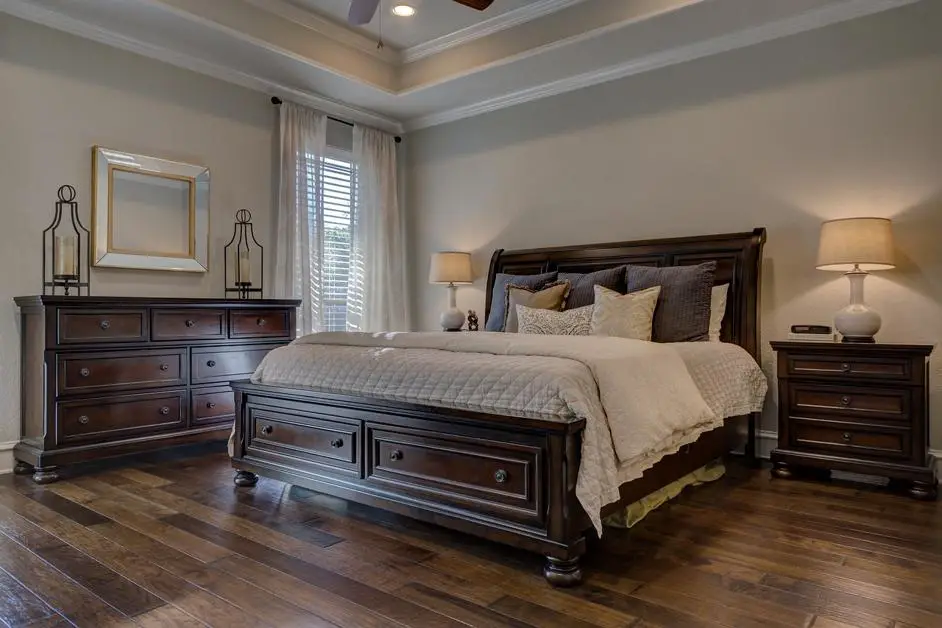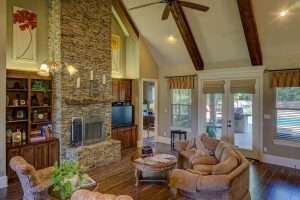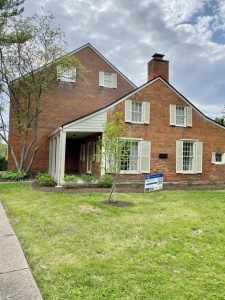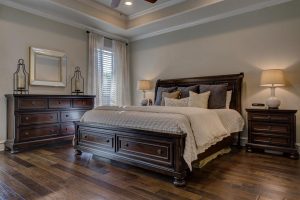Hardwood floors are suited to both casual and formal environments; they feel at home with modern or traditional and will compliment the decor of both minimalist and eclectic designs.
Hardwood can be classic, rock, jazz, country, or hip hop.
Todays State-of-the-art technology coupled with an almost limitless choice of stains, finishes, styles and designs makes hardwood flooring one of the most practical and versatile floor coverings available.
Their beauty is enduring and like a fine wine, they mature with age.
Nature provides the inspiration when designing with hardwood floors.
The abundance of natural hardwood species provides a plethora of wood grain structures, each unique and each matching a particular décor.
Oak woods contain a lot of growth ring patterns and knots, and are best suited to traditional and rustic decors.
However, adding a high gloss finish can make them elegant enough for any formal dining room.
Woods such as Maple, Walnut and Birch contain very little graining and lend themselves well to contemporary and modern designs.
The aesthetic appeal of hardwood is also influenced to a large extent by mineral streaking, the presence of knots and shade and color variation.
These features are also used in the classification of hardwoods.
Clear This grade of hardwood is free of defects though it may have minor imperfections.
Flooring in this category tends to be very consistent with little mineral streaking and knots, also making it the most expensive grade.
Select This grade is almost clear, but contains more natural characteristics such as knots and color variations.
Common grades (No.
1 and No.
2) have more markings than either clear or select and are often chosen because of these natural features and the character they bring to a room.
No.1 Common has a variegated appearance, light and dark colors, knots, flags and worm holes.
No.2 Common is rustic in appearance and will show all wood characteristics of the species.
These grades have always been the least expensive, but the recent revival of the antique rustic look has resulted in prices skyrocketing.
Performance is a very important aspect when selecting a hardwood floor.
Some hardwood species are less porous than others, making them harder and less susceptible to staining.
The Janka Hardness Test provides the relative hardness of numerous wood species used in flooring.
This rating should only be used as a general guide, as the hardness is also affected by growth region.
Plank construction and finish are also important factors when determining the durability of any wood floor.
Plank construction comes in two forms, solid and engineered.
Factors such as type of existing subfloor and relative air humidity will determine which floor is best suited to your needs.
Great advancements in finish technology have resulted in floors that are less susceptible to scratching, denting, fading, and are easier to maintain.
The addition of Aluminum Oxide to the surface finish has added a measure of performance resulting in a hardwood floor that, maintained properly, should never have to be replaced.




